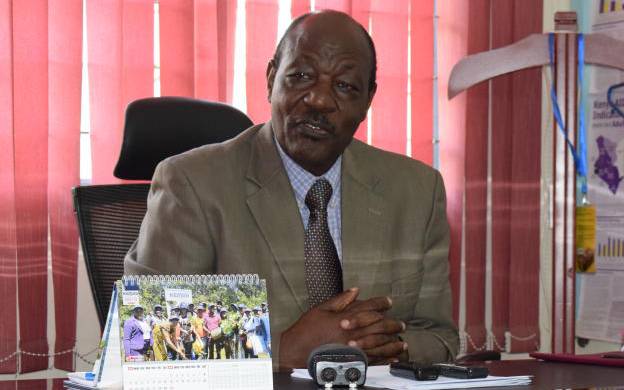×
The Standard e-Paper
Smart Minds Choose Us

The County Executive Committee Member (CECM) for Health Richard Muga addressing journalists in his office. Expectant mothers and patients in Homa Bay county risk losing their lives due to acute shortage of blood in the county health facilities. [James Omoro/Standard]
The referral hospital is facing an acute shortage of blood, putting the lives of patients seeking transfusion at risk.